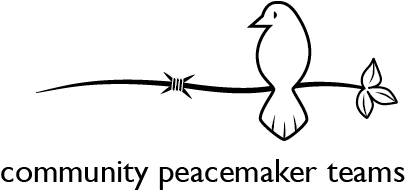Social media, a tool of advocacy
Documentation can take many forms – like that of a video, sharing about the difficult reality on the ground. It serves to remind those in power that the world is watching and will hold them accountable for their silence.
For 30 years El Guayabo has farmed the land, raising subsistence crops like corn, beans and plantain. The last year and a half has brought extreme weather conditions; from heavy rains and flooding, which have destroyed crops and the pastures on which their animals feed, to high heat, which has dried up the land, eliminating any possibility to grow food. Unable to sustain themselves, the community faced starvation. Protests and marches were held to demand action from the local government to alleviate the hunger they are suffering – but the mayor’s office failed to respond.
In March, a video campaign was launched by the CPT Colombia team, highlighting the increasingly difficult situation the communities face and the silence of an administration that denies their right to a dignified life through their lack of intervention. The videos came to the attention of the Mayor of Puerto Wilches and the Secretary of Government, who called for a meeting with the team. After providing the Mayor with a copy of all the supporting documents for their complaints, they reached an agreement that the office would follow up on the humanitarian crisis in El Guayabo.
Documenting the Occupation
CPT is an important witness to the brutality of the Israeli occupation. Incidents of human rights violations are documented and compiled into quarterly reports, which are published for our partners like the United Nations and Save The Children, among others, and used to advocate for Palestinian rights. The truth is important — it is the foundation for justice and a first step toward peace.





The Iraq Detainee Report
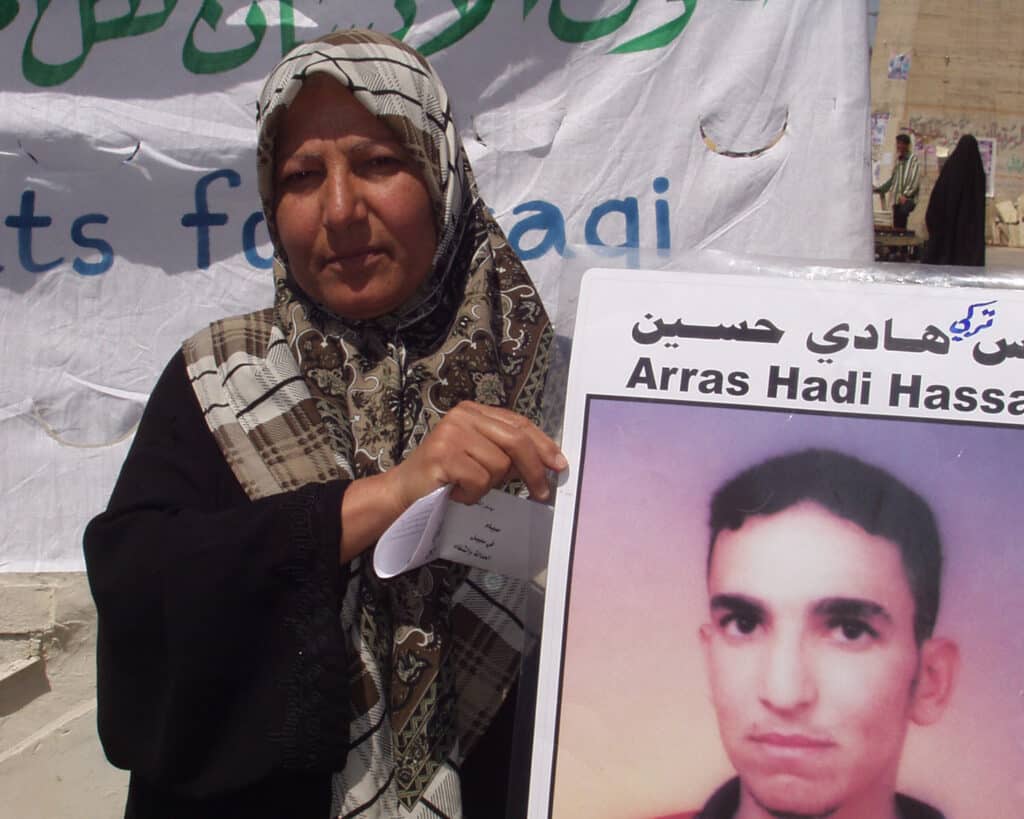
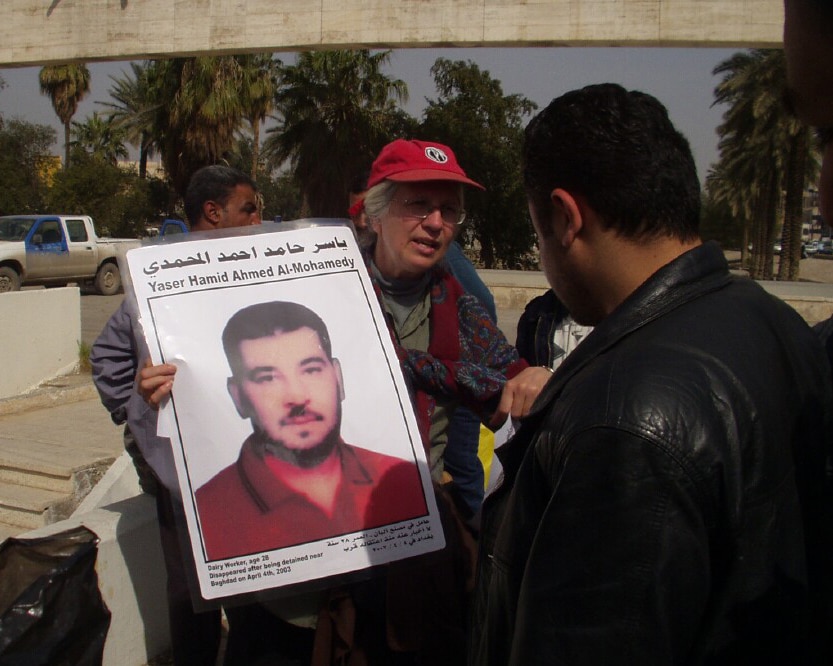
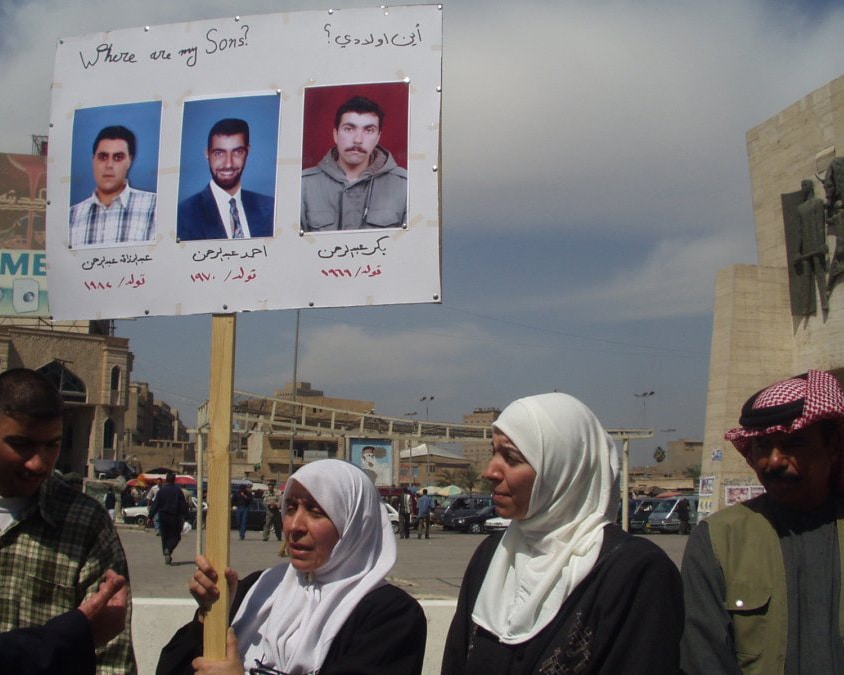
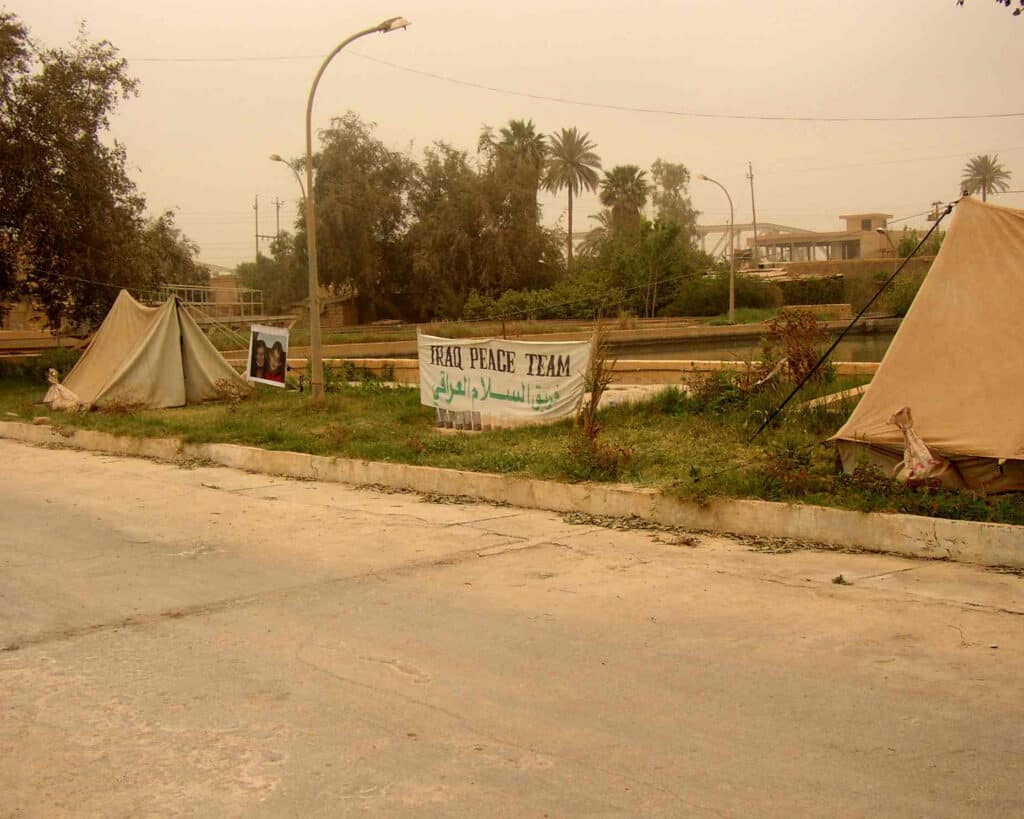
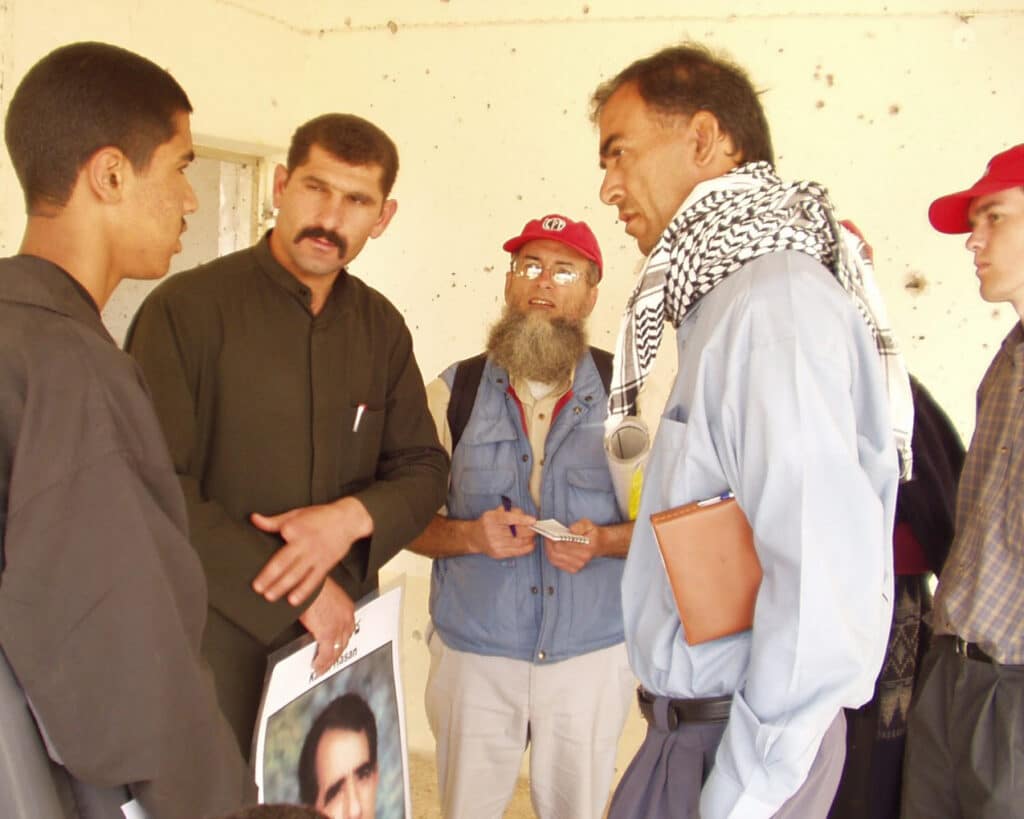
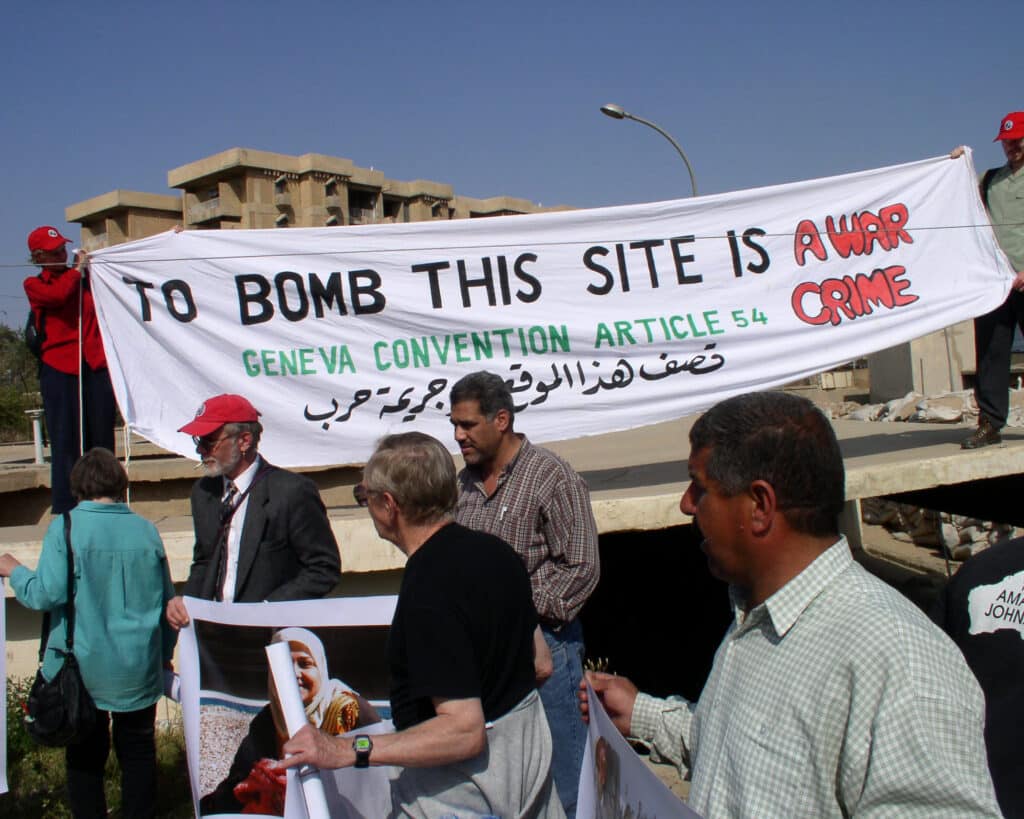
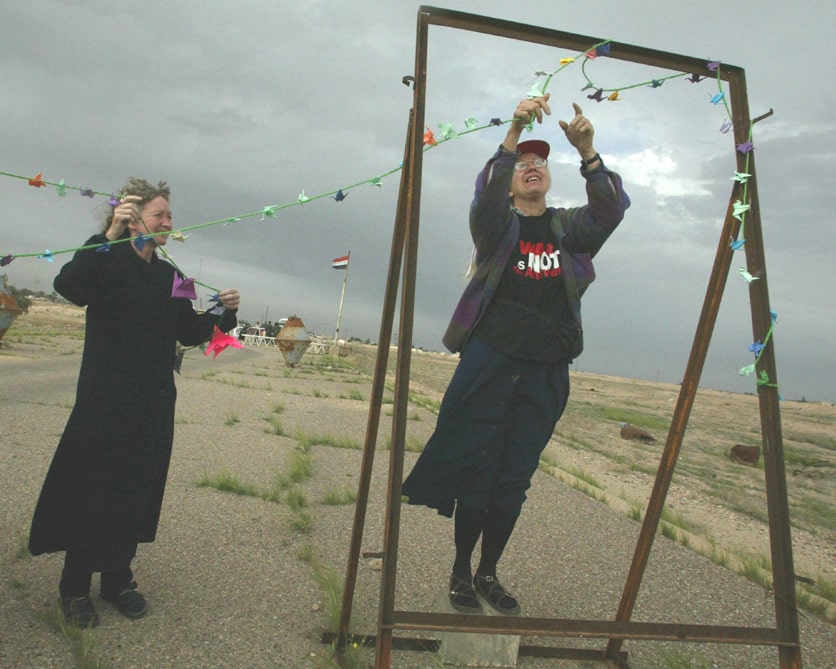
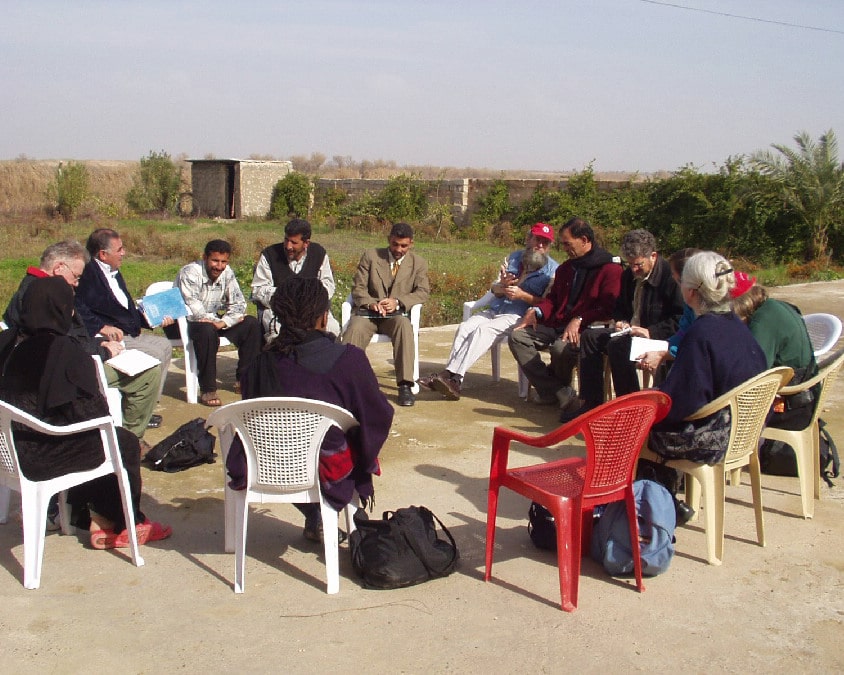
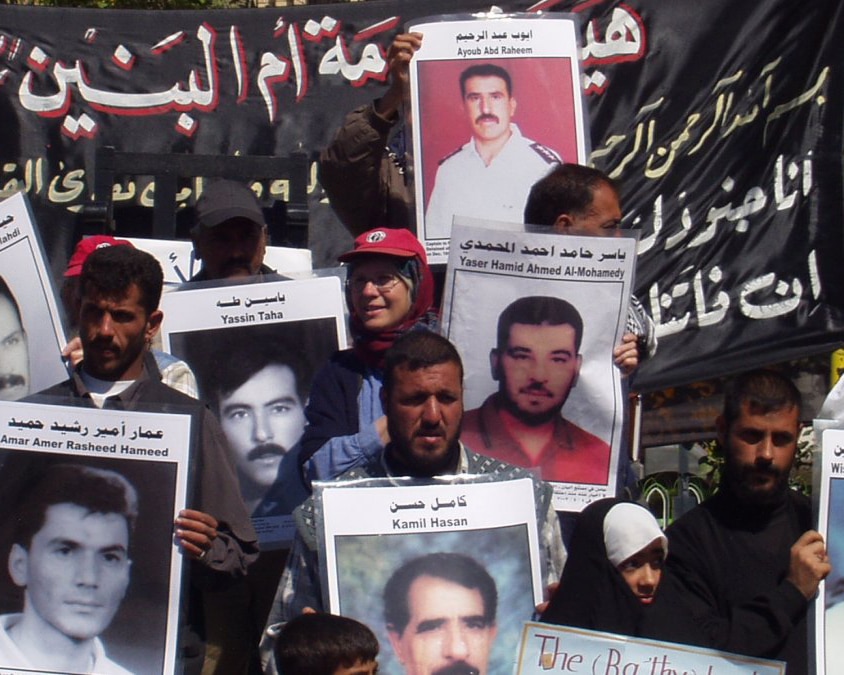
CPT sends a team to Iraq
When the US government threatened to invade Iraq, CPT sent a team to be part of the world-wide movement to speak out against and try to prevent war. Based in Baghdad, the team lived within the community, hearing and sharing the stories about the disastrous consequences of the 1991 war on Iraq. The team tried to expose the lies the U.S. government had been propagating to justify an invasion, while demonstrating the human cost of war and the Iraq people’s right to live.
Illegal U.S. invasion of Iraq begins.
“It was 5:35 in the morning, March 20, 2003—in Baghdad—when I woke to the sound of the first explosions. The dreaded war had begun.” – CPTer, Peggy Gish.
Hear Peggy in her own words.
Peggy Gish is a CPT Reservist who volunteered in Iraq with Community Peacemaker Teams before, during, and after the March 2003 U.S. invasio.
CPT starts to document the torture and abuse of Iraqi prisoners inside U.S. military facilities, after Iraqis came to team members asking for help in finding information about their detained relatives. CPT devoted significant effort to assisting families of detainees and investigating the Coalition’s process for capturing, detaining and processing persons accused of crimes against the Coalition. The team hears first-hand accounts about the horrendous conditions within the U.S. military prison, Abu Ghraib.
The general process by which CPT attempts to help relatives of detainees follows:
- Taking Testimonies
- Accompanying Families to Visit Authorities
- Attempting to Visit the Detainee
- Further Investigation
- Pursuing Detainees’ Release
- Interviewing the Released Detainee
- Publishing Testimonies/Reports
After months of conducting interviews and collecting testimonies from Iraqi detainees and/or their families, CPT releases Report and Recommendations on Iraqi Detainees, which summarizes the findings from seventy-two cases of Iraqi detainees, and includes recommendations to the US-led Coalition Provisional Authority (CPA).

CPT responds to CPAs announcement that it will release 506 detainees.
Administrator Paul Bremer announces that the Coalition Provisional Authority (CPA) will begin releasing 100 prisoners from the Abu Ghraib prison in Baghdad. CPT issues a statement stating that they hope this will begin to address the serious problem of more than 13,000 persons held in detention centers around Iraq, but they remain concerned about the treatment of these persons while they are in detention.
Journalist Seymour M. Hersh authored an article in the New Yorker magazine, exposing the abuse and torture taking place within Abu Ghraib. Prior to its release, CPT had conveyed their concerns to Hersh, sharing their report. Hersh follow-up with an article on May 9th, quoting CPTer Cliff Kindy. The articles sparked global outcry, as well as national hearings and investigations.
Read
Torture at Abu Ghraib: American soldiers brutalized Iraqis. How far up does the responsibility go?
Chain of Command: How the Department of Defense mishandled the disaster at Abu Ghraib.

Inspired by CPT, Muslim Peacemaker Teams (MPT) is formed.
The founder of MPT explained why he was influenced by CPT:
“They brought Shias, Muslims and Sunnis together. They help us. We were inspired by their action to travel all these thousands of miles across the ocean to come here in Iraq and speak about peace, [and] promote nonviolence. And they are so steady and consistent in visiting the same place they did visit many times just to lay down their sense of community and friendship.”
CPT sends a team to Iraq
When the US government threatened to invade Iraq, CPT sent a team to be part of the world-wide movement to speak out against and try to prevent war. Based in Baghdad, the team lived within the community, hearing and sharing the stories about the disastrous consequences of the 1991 war on Iraq. The team tried to expose the lies the U.S. government had been propagating to justify an invasion, while demonstrating the human cost of war and the Iraq people’s right to live.
Illegal U.S. invasion of Iraq begins.
“It was 5:35 in the morning, March 20, 2003—in Baghdad—when I woke to the sound of the first explosions. The dreaded war had begun.” – CPTer, Peggy Gish.
Hear Peggy in her own words.
Peggy Gish is a CPT Reservist who volunteered in Iraq with Community Peacemaker Teams before, during, and after the March 2003 U.S. invasio.
CPT starts to document the torture and abuse of Iraqi prisoners inside U.S. military facilities, after Iraqis came to team members asking for help in finding information about their detained relatives. CPT devoted significant effort to assisting families of detainees and investigating the Coalition’s process for capturing, detaining and processing persons accused of crimes against the Coalition. The team hears first-hand accounts about the horrendous conditions within the U.S. military prison, Abu Ghraib.
The general process by which CPT attempts to help relatives of detainees follows:
- Taking Testimonies
- Accompanying Families to Visit Authorities
- Attempting to Visit the Detainee
- Further Investigation
- Pursuing Detainees’ Release
- Interviewing the Released Detainee
- Publishing Testimonies/Reports
After months of conducting interviews and collecting testimonies from Iraqi detainees and/or their families, CPT releases Report and Recommendations on Iraqi Detainees, which summarizes the findings from seventy-two cases of Iraqi detainees, and includes recommendations to the US-led Coalition Provisional Authority (CPA).

CPT responds to CPAs announcement that it will release 506 detainees.
Administrator Paul Bremer announces that the Coalition Provisional Authority (CPA) will begin releasing 100 prisoners from the Abu Ghraib prison in Baghdad. CPT issues a statement stating that they hope this will begin to address the serious problem of more than 13,000 persons held in detention centers around Iraq, but they remain concerned about the treatment of these persons while they are in detention.
Journalist Seymour M. Hersh authored an article in the New Yorker magazine, exposing the abuse and torture taking place within Abu Ghraib. Prior to its release, CPT had conveyed their concerns to Hersh, sharing their report. Hersh follow-up with an article on May 9th, quoting CPTer Cliff Kindy. The articles sparked global outcry, as well as national hearings and investigations.
Read
Torture at Abu Ghraib: American soldiers brutalized Iraqis. How far up does the responsibility go?
Chain of Command: How the Department of Defense mishandled the disaster at Abu Ghraib.

Inspired by CPT, Muslim Peacemaker Teams (MPT) is formed.
The founder of MPT explained why he was influenced by CPT:
“They brought Shias, Muslims and Sunnis together. They help us. We were inspired by their action to travel all these thousands of miles across the ocean to come here in Iraq and speak about peace, [and] promote nonviolence. And they are so steady and consistent in visiting the same place they did visit many times just to lay down their sense of community and friendship.”
